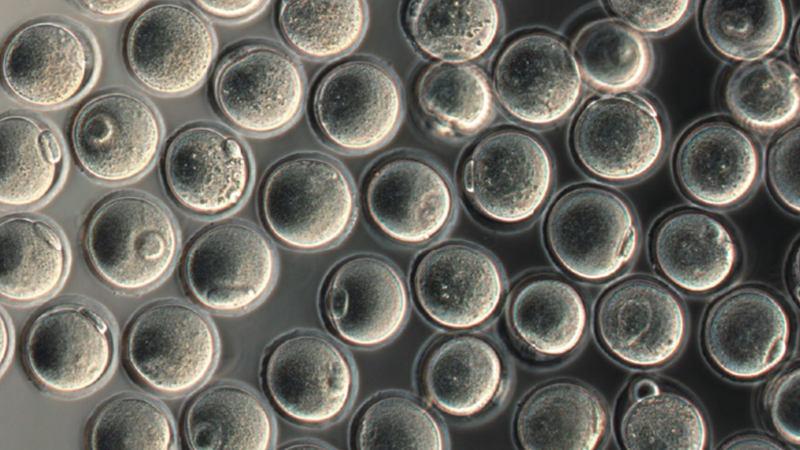
Using skin cells extracted from mice, researchers in Japan have produced fully functional egg cells that were used to produce healthy mouse pups. Should the method work in humans, it could introduce powerful new ways of treating infertility—and even allow same-sex couples to produce biological offspring.
This is the first time ever that scientists have produced functional mammalian eggs entirely within the confines of a petri dish. In a new study published in Nature Research, Katsuhiko Hayashi and colleagues from Kyushu University in Japan describe a new technique in which viable “artificial eggs” can be generated with stem cells, and then fertilized to produce healthy and fertile mouse pups. It’s also the first time that eggs have been produced entirely outside of a mouse.
Egg cells are the only type of cell in the body capable of dividing and producing all of the distinct and highly specialized cells in an organism. Scientists have tried to understand how these cells develop by trying to replicate the process in the lab.
http://io9.gizmodo.com/new-research-s…
This same group of scientists has already succeeded in turning mouse skin cells into primary germ cells, and they’ve been trying to turn these germ cells into full-fledged egg cells. It now appears that they’ve finally found a way to do it.
After extracting skin cells from the tails of 10-week-old mice, Hayashi’s team turned the cells into pluripotent stem cells, which can turn into virtually any other type of cell in the body. These cells were immersed in a complex chemical bath that coaxed the cells into becoming immature egg cells. After adding tissue taken from the ovaries of mouse fetuses, the immature eggs developed into mature eggs, or functional oocytes. These eggs were then fertilized in vitro and transplanted into surrogate mice, some of whom gave birth to healthy pups.

The technique works, but considerable progress needs to done before we can even think about applying it to humans. For starters, humans aren’t mice; we’re vastly more complex than these perennial lab companions. Moreover, only 3.5 percent of the early embryos created from the artificial eggs went on to produce pups. That’s a discouragingly low figure. The vast majority of the oocyte-like eggs were of very poor quality. Hayashi worries that these eggs might produce abnormal offspring.
Assuming these problems can be fixed, and that the technique can be applied to humans, it could introduce entirely new forms of assisted reproduction. It would give clinicians almost unlimited access to mature eggs, and allow women with any number of reproductive issues (e.g. low egg counts, age-related declines in fertility, disease, etc) to create eggs through an entirely new means. Also, there’s no reason to believe that this technique couldn’t work for men, allowing same sex couples to produce biological offspring.
The researchers figure it’ll take them another five to ten years to sort out the outstanding technical issues, so it’ll be a while before we see this method at a fertility clinic near you. That should give us plenty of time to discuss—and hopefully accept—the wider social implications of this exciting new technique.



